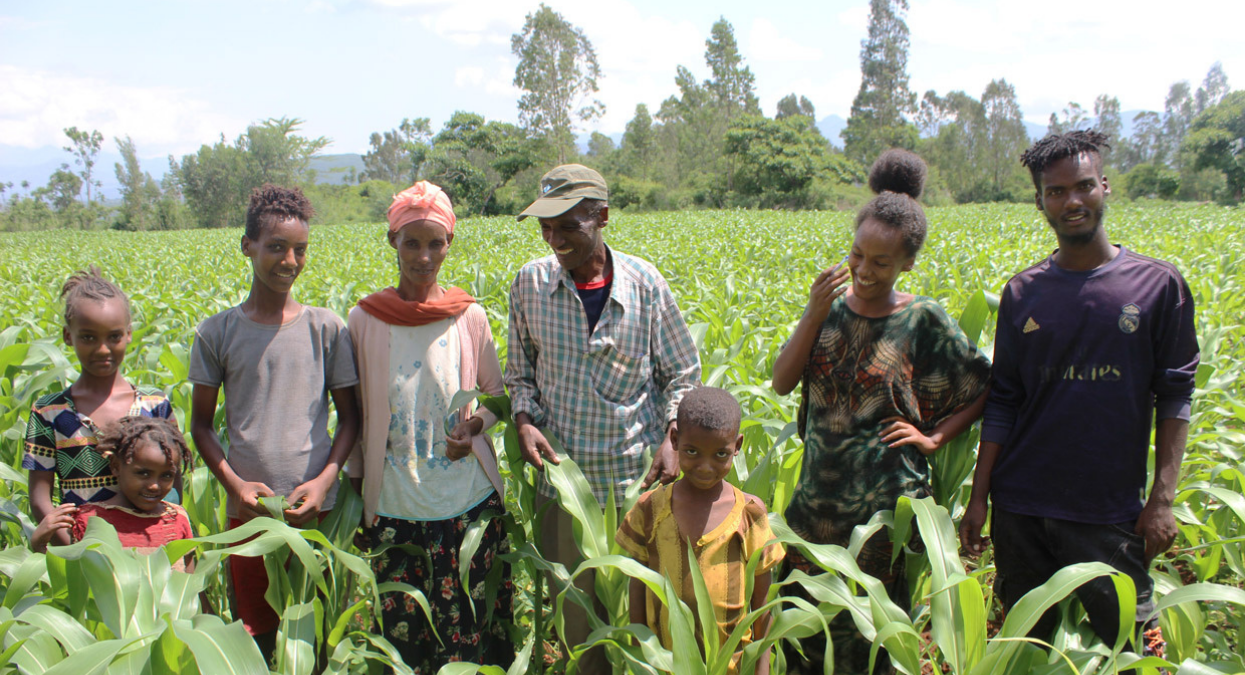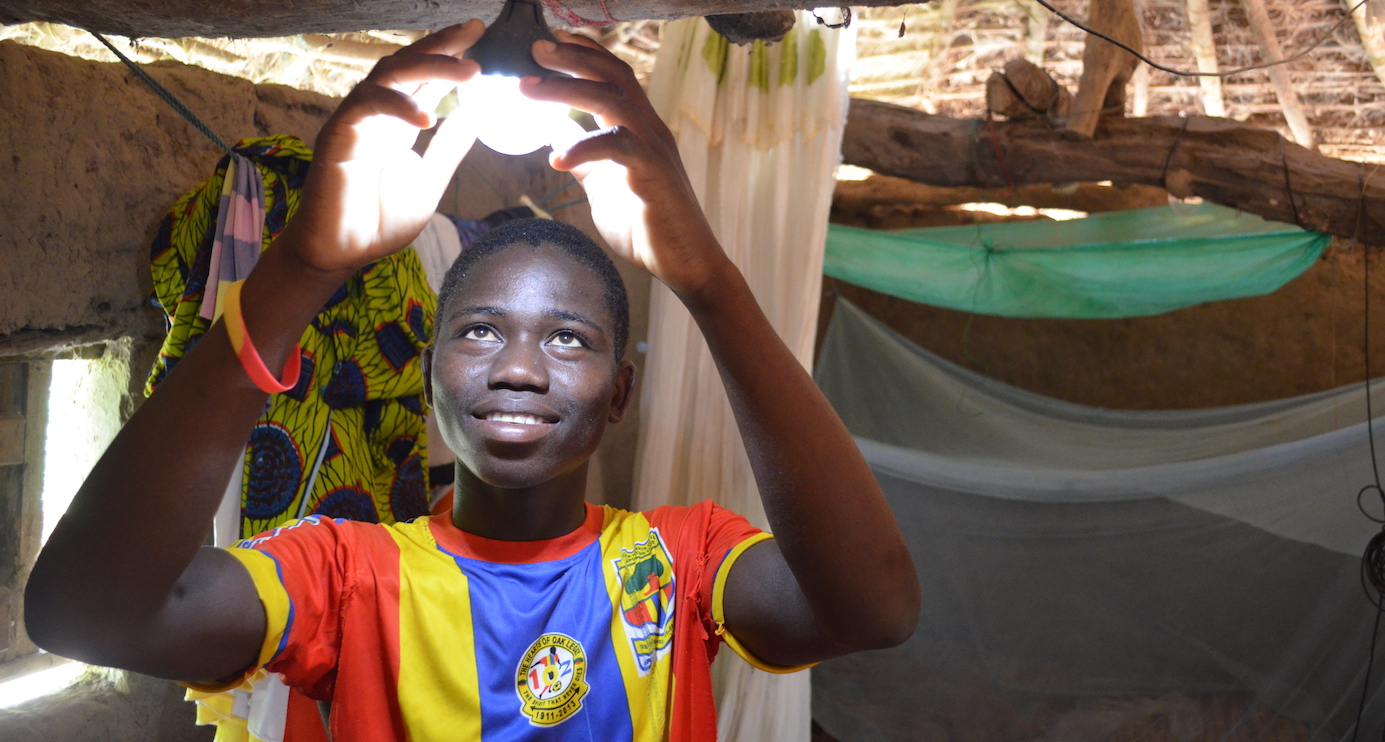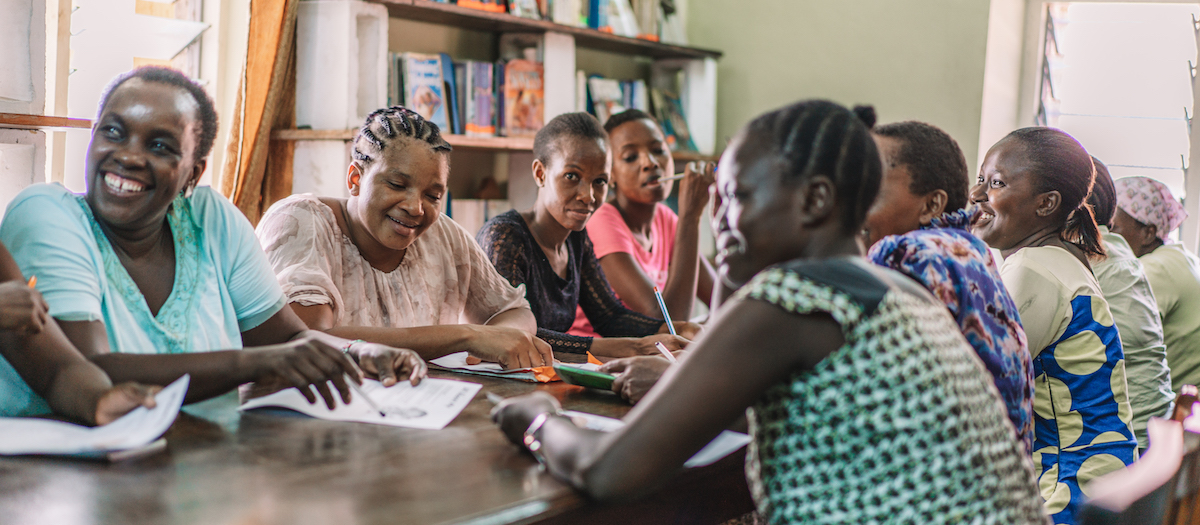One question was how to create a model that put Vava’s partners first. While many companies champion a ‘fair trade’ model — which requires consumers and importers to a minimum pricing standard — Vava believes producers deserve better. On average, Kenya’s smallholder coffee farmers earn less than 35% of the international market value on their high-quality specialty coffees, which equates to less than one U.S. dollar per day. Vava Coffee seeks to reward farmers for their hard work by purchasing beans at a price that covers production costs, accounts for quality, and increases their bottom line by offering a more competitive price than fair trade minimums.
Redefine Success
Vava Coffee redefines ‘fair’ pricing for coffee farmers, putting partners first
Creating sustainable pricing models for farmers through equitable partnerships
October 05, 2021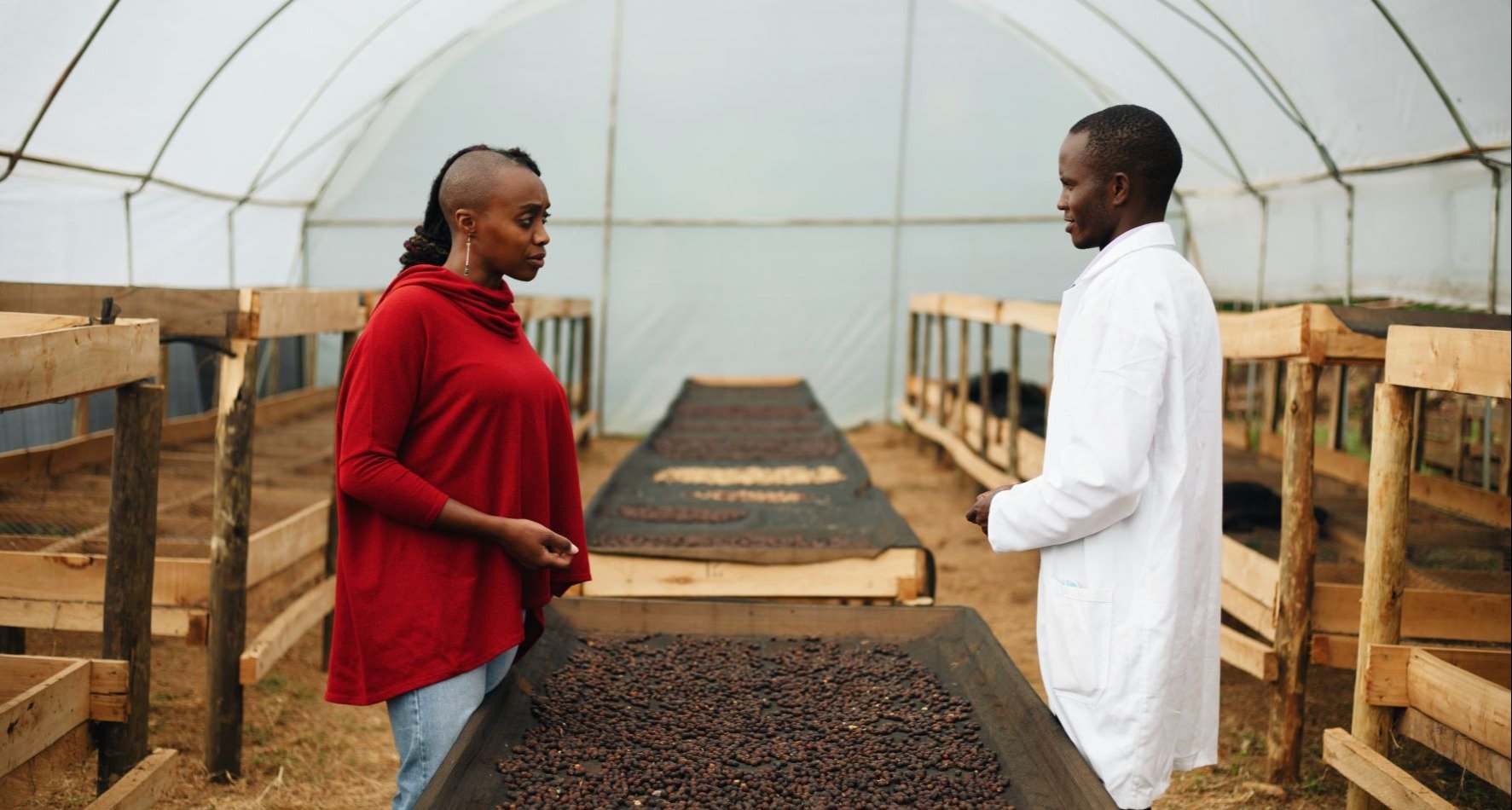
Vava Angwenyi’s curiosity with coffee dates back to her college years — logging late nights in the library, sipping a Starbucks, and fighting the urge to sleep. Vava became intrigued by the copious amounts of coffee passing through the hands of her classmates each day, which was a stark contrast to her home country of Kenya where the coffee-drinking culture wasn’t as popular.
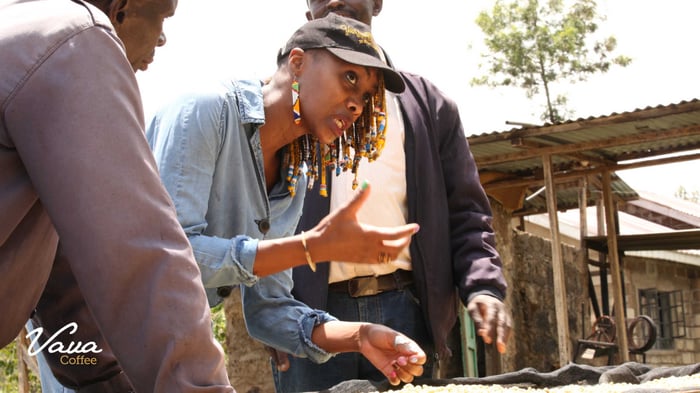
Vava Angwenyi, Founder of Vava Coffee Ltd
Today, Vava is the Founder of Vava Coffee Ltd — a B-Corp Certified Social Enterprise based in Kisaju-Kajiado County that creates sustainable livelihoods for smallholder coffee farmers by disrupting the traditional coffee industry. Vava’s vision for impact was rooted in her earliest introduction to the industry, where she observed Kenyan coffee producers who were increasingly unhappy with their profits.
Since launching in 2009, Vava Coffee has partnered with over 30,000 producers in regions in Kenya and Tanzania, supporting sustainable livelihoods for thousands of farmer families. Vava attributes part of this success to her strong partnerships with both producers and buyers. “I love the buyers who come back each season, buy our coffee, and work with us to navigate certain challenges. If we didn’t have good partnerships with our buyers when COVID happened, we would have sunk. I believe that partnerships are more important than contracts because there should always be a bit of wiggle room when navigating things outside of everyone’s control.” said Vava.
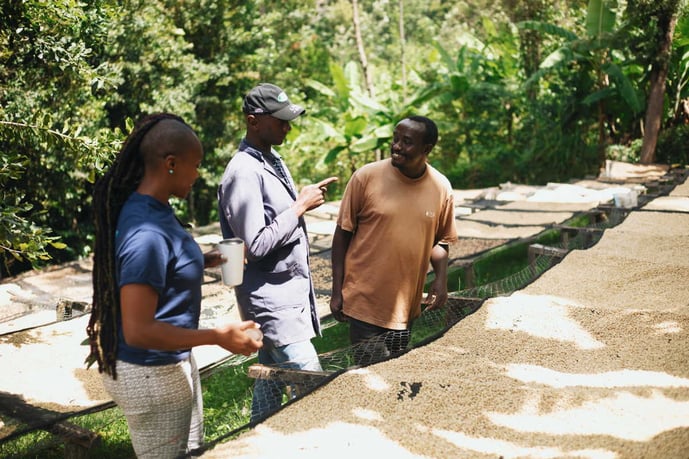
Meru producers - Kibari Estate and Deman Estate
Similar to many businesses who struggled during the pandemic, Vava’s team sustained with the help of partners. But the uncertainty of her business — despite her solid partnerships — motivated Vava to apply to the Acumen and IKEA Social Entrepreneurship Accelerator. The Accelerator is a 19-week program facilitated by IKEA coaches and Acumen advisors that equip social entrepreneurs with the technical skills and leadership guidance to scale their impact and model their business for sustainability.
With support from IKEA coaches, Jonathan Bengtsson and Anita Francoise Goyhenetche, Vava began exploring distribution opportunities with corporate partners like IKEA.
Finding the right partner can be transformative — but tricky. From Vava’s experience, she encourages entrepreneurs to dig deep to find partners who align with one’s specific non-negotiable values and standards.
From the perspective of a corporation such as IKEA, whose portfolio of partners is constantly growing, Jonathan and Anita highlight a few key considerations for social enterprises to keep in mind. “When looking to partner with a social enterprise, corporate companies will have a high demand on traceability and supply chain security. The passion and the willingness to make the world a better place is also attractive and something we always wish to find in a partner." Traceability refers to the ability to track processes from procurement to production, while supply chain security involves mitigating any system disruption that could cause damage to operations.
“I’ve learned quite a bit from my coaches — it’s always good to get an entirely new perspective from people who don’t work in your industry, because they can give you solutions that you’re not thinking of because you’re stuck in your mind thinking about the way things should be,” says Vava.
If you’re interested in learning more about integrating social enterprises into corporate value chains, check out Acumen’s ‘Corporate-Ready’ report, supported by IKEA Social Entrepreneurship.
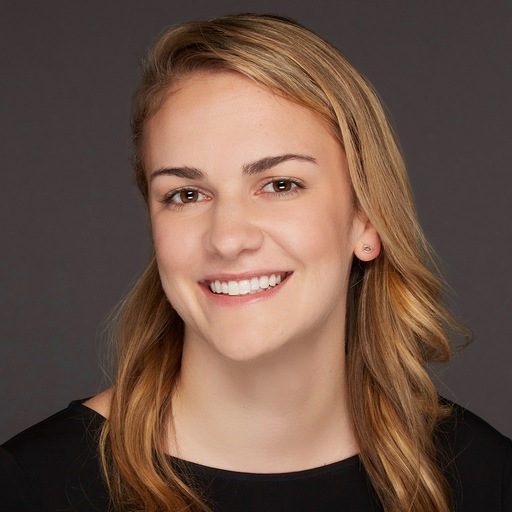
Author
Emily Close
Emily is a Content Creator at Acumen Academy, where she works alongside social entrepreneurs tackling the toughest issues of inequality, to bring their stories to the forefront and share their solutions with other individuals aspiring to affect social change. You can find Emily building content with her colleagues, bouldering with friends, or buried in a book in one of London’s oldest bookstores.
